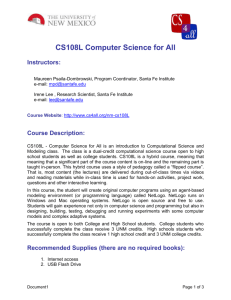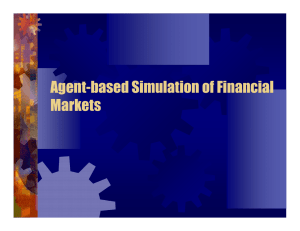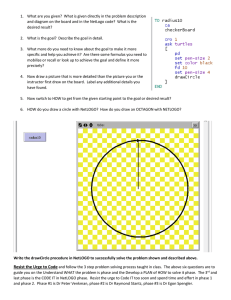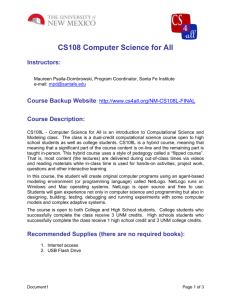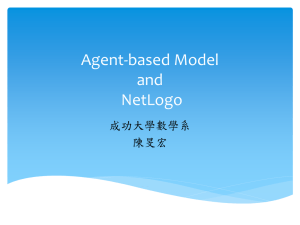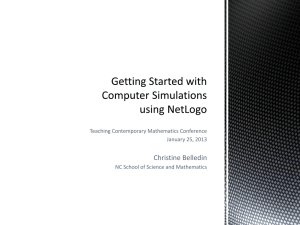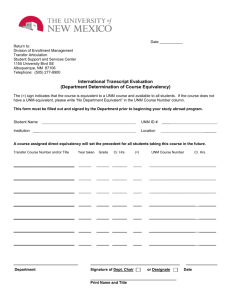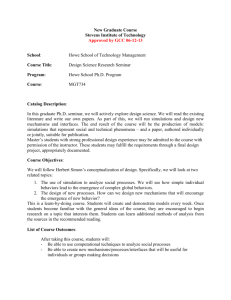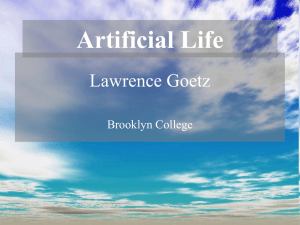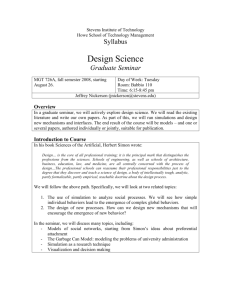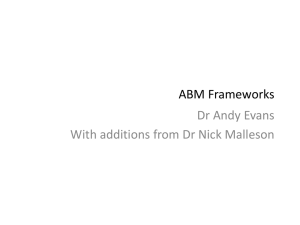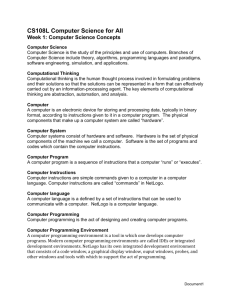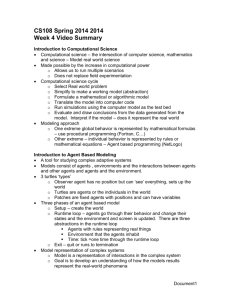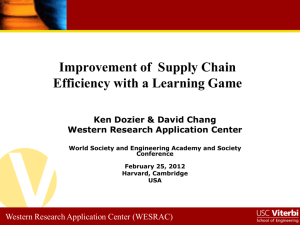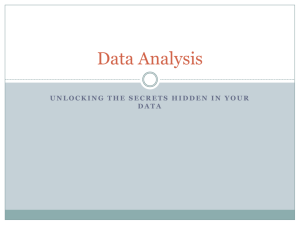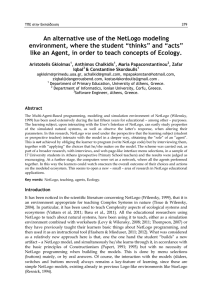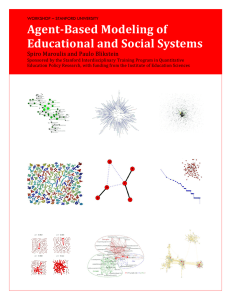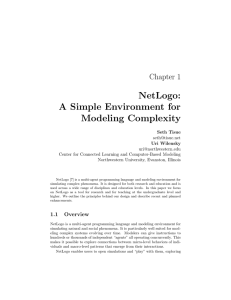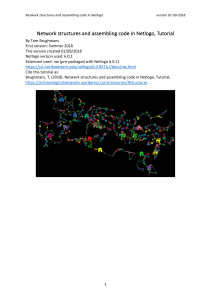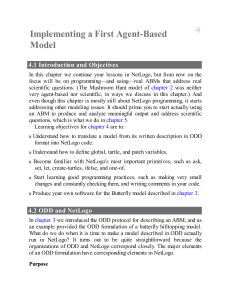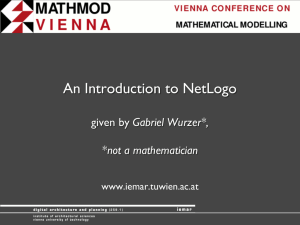CS108 NM-CSforAll - New Mexico Computer Science for All
advertisement
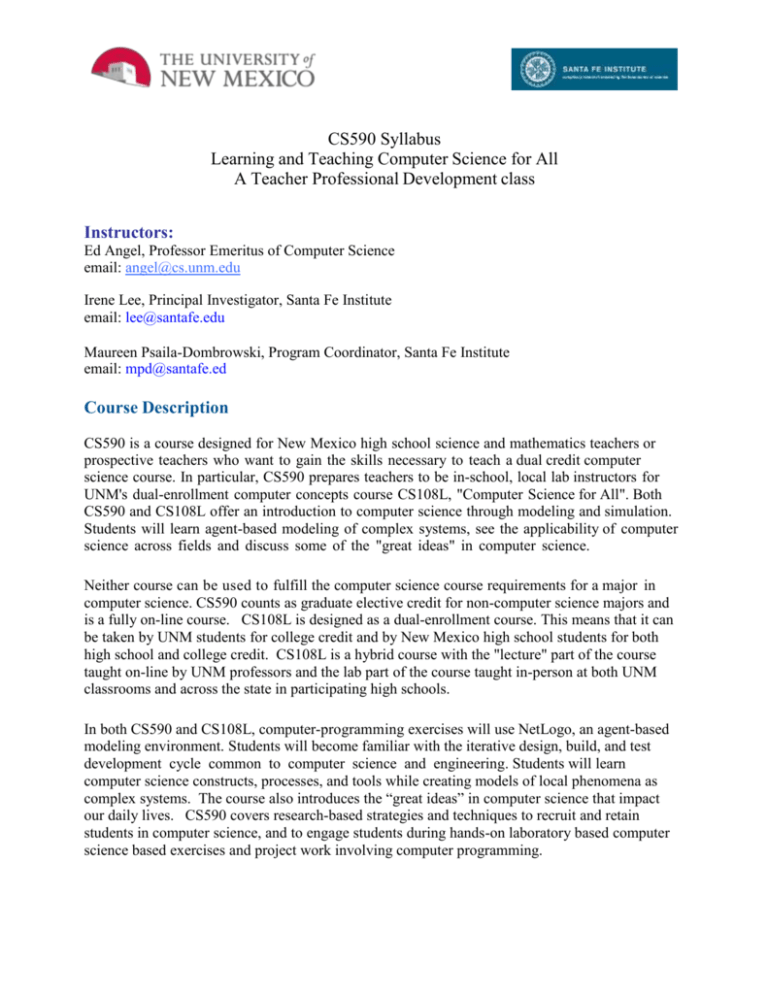
CS590 Syllabus Learning and Teaching Computer Science for All A Teacher Professional Development class Instructors: Ed Angel, Professor Emeritus of Computer Science email: angel@cs.unm.edu Irene Lee, Principal Investigator, Santa Fe Institute email: lee@santafe.edu Maureen Psaila-Dombrowski, Program Coordinator, Santa Fe Institute email: mpd@santafe.ed Course Description CS590 is a course designed for New Mexico high school science and mathematics teachers or prospective teachers who want to gain the skills necessary to teach a dual credit computer science course. In particular, CS590 prepares teachers to be in-school, local lab instructors for UNM's dual-enrollment computer concepts course CS108L, "Computer Science for All". Both CS590 and CS108L offer an introduction to computer science through modeling and simulation. Students will learn agent-based modeling of complex systems, see the applicability of computer science across fields and discuss some of the "great ideas" in computer science. Neither course can be used to fulfill the computer science course requirements for a major in computer science. CS590 counts as graduate elective credit for non-computer science majors and is a fully on-line course. CS108L is designed as a dual-enrollment course. This means that it can be taken by UNM students for college credit and by New Mexico high school students for both high school and college credit. CS108L is a hybrid course with the "lecture" part of the course taught on-line by UNM professors and the lab part of the course taught in-person at both UNM classrooms and across the state in participating high schools. In both CS590 and CS108L, computer-programming exercises will use NetLogo, an agent-based modeling environment. Students will become familiar with the iterative design, build, and test development cycle common to computer science and engineering. Students will learn computer science constructs, processes, and tools while creating models of local phenomena as complex systems. The course also introduces the “great ideas” in computer science that impact our daily lives. CS590 covers research-based strategies and techniques to recruit and retain students in computer science, and to engage students during hands-on laboratory based computer science based exercises and project work involving computer programming. Textbooks There is no required textbook for the class. This course will be will be using a number of free online references. The three primary such resources will be: 1) Northwestern University’s NetLogo Documentation on the web at: http://ccl.northwestern.edu/netlogo/index.shtml 2) The community created NetLogo Wiki on the web at: http://backspaces.net/wiki/NetLogo_Tutorial 3) Excerpts from the book “Blown to Bits" This book is available as a free download at bitsbook.com. Grading Each student's final course grade is computed as weighted average of seven components: 1) Quizzes and Assignments: 80%. a. Programming Assignments: 50% b. Discussions: 15%. c. Quizzes: 15% 2) Midterm exam/project: 10% 3) Final exam/project: 10% Letter Grade Score Ranges Numerical Score > 100+% 93% – 100% 90% – 92% 87% – 89% 83% – 86% 80% – 82% 77% – 79% 73% – 76% 70% – 72% 67% – 69% 60% – 66% 50% - 59% <50 Letter Grade A+ A AB+ B BC+ C CD+ D DF CS-590 Syllabus Week 1 Introduction to NetLogo Week 2 Introduction to Computational Thinking Week 3 Introduction to Abstraction Week 4 Introduction to Modeling Week 5 Boolean Logic Week 6 Variables and Scope Week 7 Running Experiments with Computer Models Week 8 Review and Midterm Exam Week 9 Algorithms Week 10 More Algorithms Week 11 Recursion Week 12 Epidemic Modeling Week 13 Ecosystem Modeling Week 14 Project Work Week 15 Project Work Week 16 Review and Final Exam
